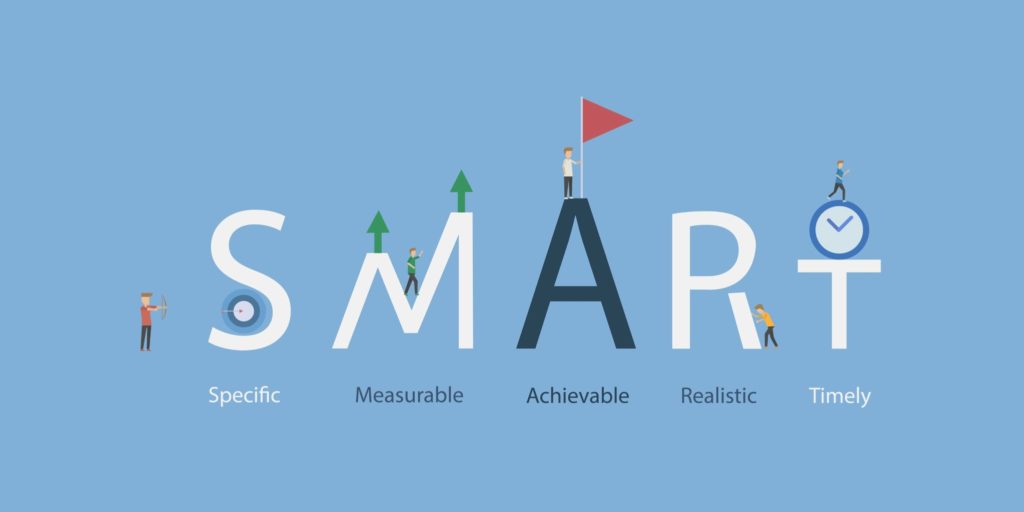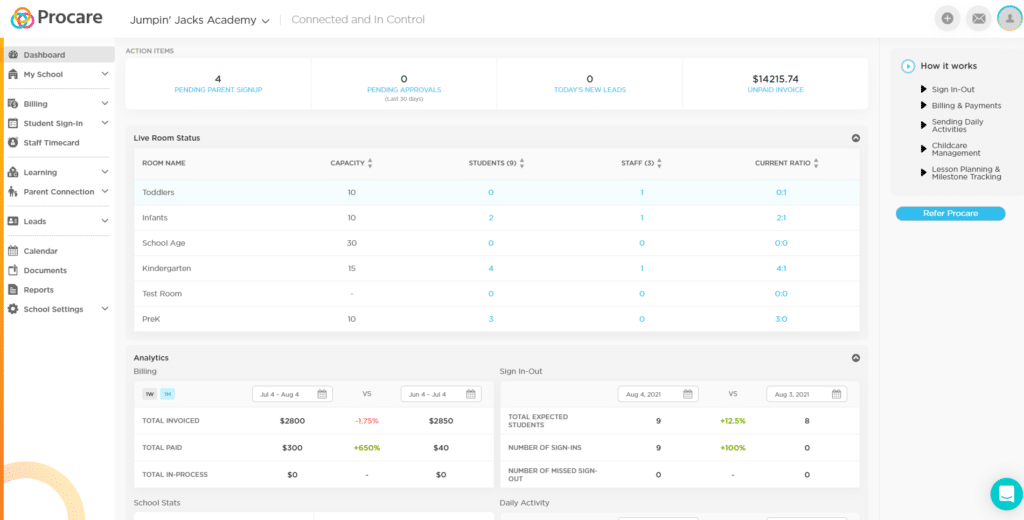Staff Evaluations Coming Up? We Have Tips and a Template to Help!

By: Procare

As the end of the year comes, many child care centers are thinking about staff evaluations.
Regular feedback is critical to help your staff be the best they can be at their jobs, and to do that, they must know what they’re doing well at and how they can improve.
Let’s take a look at why staff evaluations are so important along with some tips on how best to assess your staff.
And you’ll want to download our child care staff assessment form template at the end of the post. You can save it, print it and adapt it to the needs of your center.
A child care staff evaluation measures an employee’s performance and usually involves both a written evaluation and an in-person review.
Evaluations should be done every six months to a year to help your staff set clear goals based on your assessment.
Free Template
Child Care Staff Evaluation & Assessment
This free template helps ensure you cover all your bases when you review your child care staff’s performance.
Organizing a Child Care Staff Evaluation Form
Let’s take a look at six key portions that should be covered on your form. You can rate each skill on a scale of 1 to 5 based on the staff member’s proficiency in that area and add a brief explanation of the rating scale to give the numbers meaning.
Employee Information
Basic information to mention to begin with includes:
- The name of the employee
- Their position at your center
- The date
- The name of the person doing the evaluation
Professional Conduct Evaluation
Professional conduct refers to the expectations of behavior applied to all employees when it comes to taking their job seriously, dealing appropriately with coworkers and adhering to rules, ethics and professional standards.
Assess the following:
- The staff member’s punctuality and attendance
- Is the staff member’s appearance and grooming appropriate?
- Do they maintain positive relationships with colleagues?
- Do they use work-appropriate language and communicate politely with others?
- Do they avoid gossip and personal conversations?
- Does the staff member embrace teamwork and contribute their fair share?
- The staff member’s adherence to professional ethical guidelines, such as confidentiality
- How well does the staff member deal with conflict and criticism?
Child Care Work Evaluation

Assessing your child care employee’s approach to working with children is crucial. Answer these questions about the employee:
- How friendly and engaging is the staff member’s attitude toward children?
- Do they document children’s progress and keep records?
- Is their communication with children developmentally appropriate and positive?
- Are they comfortable working with children who have special needs?
- Do they show respect for children’s individuality, promoting independence and self-esteem?
- Do they avoid use of labels and negative terms for children?
- Do they encourage good behavior and use appropriate discipline when necessary?
- How well do they engage with children, such as by joining kids on the floor?
Parent Engagement Evaluation
How well does your employee build positive relationships with parents? How well do they understand families’ needs and their individual circumstances? Rating items can include:
- Is the staff member a friendly, welcoming ambassador to families?
- Do they work effectively with parents to solve child care issues?
- Are parent communications clear, effective and timely?
- Do they navigate concerns and difficult conversations with tact and sensitivity?
- Are they a respectful and sympathetic listener?
- Do they make themselves available when needed by parents?
Classroom Skills Evaluation
Lesson planning, classroom management, organization and effective use of time are all factors in this portion of the evaluation:
- Do they develop and make full use of lesson plans in keeping with the curriculum?
- Are the classroom’s learning centers used effectively?
- Is the room prepared in advance daily and maintained in an orderly way?
- Are classroom activities developmentally appropriate?
- Do they use a variety of learning activities and materials?
- Do they plan ahead for potential interruptions and changes?
- Is there an established classroom routine?
- Do they provide a positive, nurturing environment?
Professional Development Evaluation
Consider how the employee approaches their job as part of their overall career goals, such as in commitment to continuing education, their change advocacy and self-improvement skills.
Questions to ask include:
- Does the employee take any classes or seek new qualifications in child care or other areas that could be of use at the center?
- Do they seek opportunities to improve and try new things?
- Are there any mentorship relationships between the staff member and other employees?
- Do they find ways to contribute to the center outside their main job duties?
- Do they set appropriate career and self-improvement goals?
Five Tips for Child Care Staff Evaluations

- Ask Your Staff to Self-Evaluate. Your staff members’ perspective on their own work is as important as yours. Giving your employees the opportunity to evaluate themselves lets them reflect on their own work and identify their strengths and weaknesses, while giving you insight into their approach to work.
- Schedule a One-on-One Meeting to Review the Staff Evaluation Form. Staff evaluations are a two-way conversation, and employees should be given every opportunity to respond to feedback and seek guidance. A one-on-one meeting opens the door for staff to have their voices heard with you turning the evaluation form into a living document that reflects the concerns and needs of both employer and employee.
- Identify Opportunities for Improvement. Simply noting strengths and weaknesses is helpful for employees to understand their performance, but to make your reviews most effective, work with your employees to plan next steps. Every staff member’s individual challenges open a door for them to learn and grow as an educator, and for you to help your staff reach their full potential.
- Set SMART Goals. SMART goals are goals that are Specific, Measurable, Achievable, Realistic and Timely. Regular performance reviews allow you to set clear, objective goals for your staff that can be achieved within a set timeframe. SMART goals let you translate your employee standards into actionable items in which your staff can easily measure their progress.
- Revisit Past Evaluations to Assess Staff Development. Looking at past reviews at each evaluation lets you get the big picture of your staff’s growth and change over time. This way, rather than taking an out-of-context snapshot, you’ll be able to ensure that each staff member is on a positive trend.
Manage Your Child Care Staff with Procare Solutions

Your staff members form the heart of your child care business and you want to do everything you can to help make them the best educators they can be.
Procare’s trusted all-in-one child care app gives you all the tools you need to manage every part of your child care center, from staffing to security, with the support of our expert community.
With comprehensive staff management features, you’ll save time on tasks like payroll and scheduling, while easily monitoring staff-to-child ratios.
Our leading parent engagement platform empowers your staff to send engaging real-time updates to parents, and supports classroom management activities like recordkeeping.
Want to learn how Procare can make managing staff at your child care center as easy as ABC?
- List of Sensory Activities for Infants & Toddlers
- 25 Questions for Daycare Providers to Ask Parents About Their Child
- Daycare Age Ranges: Understanding the Differences
- What a Drop in Child Care Funding Means and What States are Doing
- 10 Early Childhood Behavior Management Strategies






